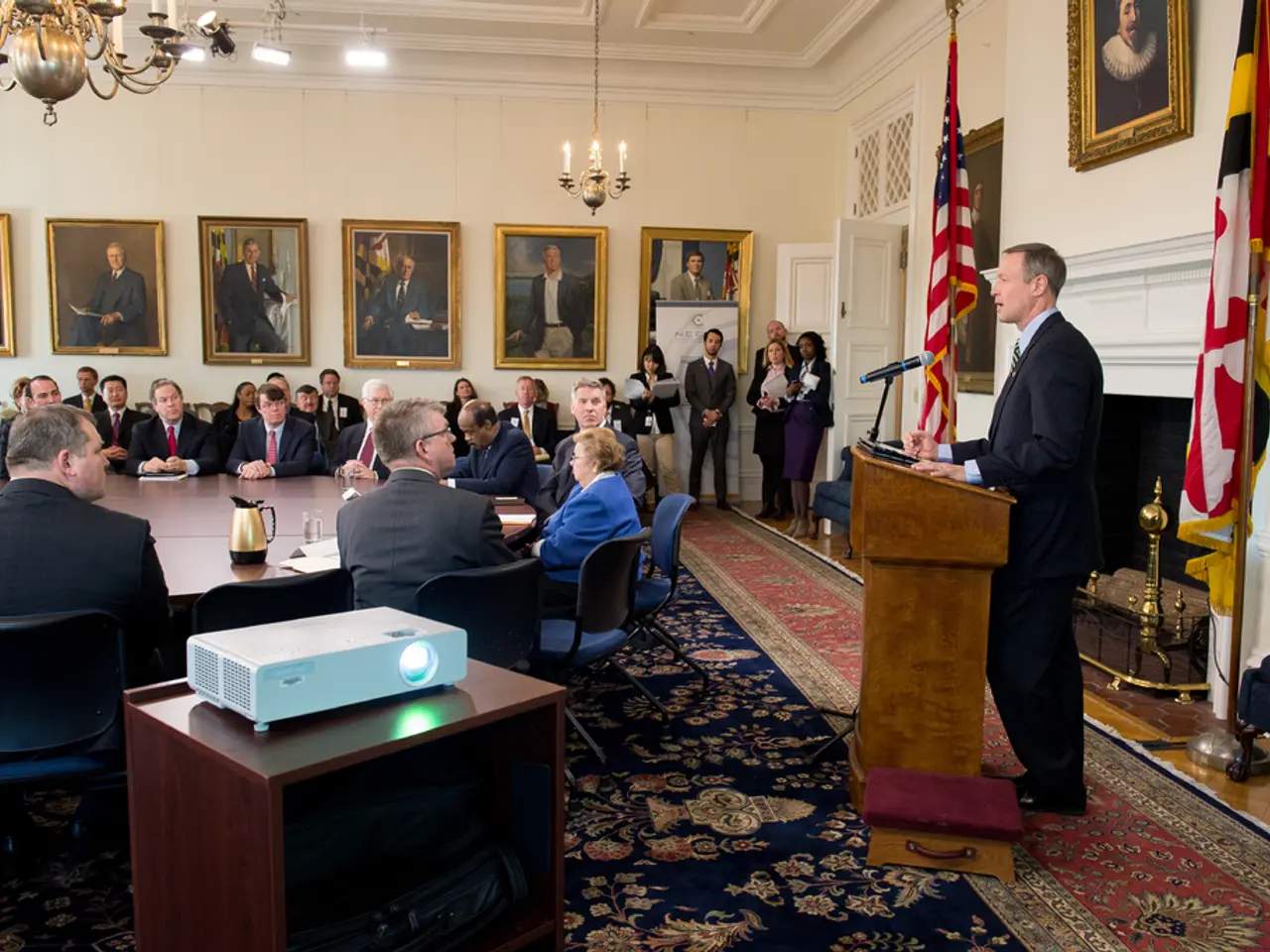Ex-Prime Minister of Thailand, Thaksin, to appear in court for accusations of defaming the royal family.
In the heart of Bangkok, former Thai Prime Minister Thaksin Shinawatra is currently standing trial on charges of royal defamation, a case that has been making headlines since mid-July 2025. The verdict, scheduled for August 22, 2025, marks a significant legal milestone since Thaksin's return from 15 years of self-imposed exile in 2023.
The case stems from a 2015 interview Thaksin gave to the South Korean media, where he allegedly made controversial remarks about privy councillors and the military coup that ousted his sister Yingluck Shinawatra's government. If convicted under Thailand’s strict lese majeste laws, which protect the monarchy from criticism, Thaksin faces up to 15 years in prison.
This trial has become a key test for the Shinawatra political dynasty, which has been a dominant force in Thai politics for over two decades. The family is currently facing significant challenges, with Thaksin’s prosecution and his daughter, Prime Minister Paetongtarn Shinawatra, being suspended recently over an ethical scandal. The ruling coalition allied with the Shinawatras has also lost critical conservative support, leaving it with only a razor-thin parliamentary majority and a caretaker government.
The outcome of this trial is likely to have a major impact on the political fortunes of the Shinawatra family and the broader Thai political landscape. A conviction could further erode their influence and intensify political instability, while an acquittal might revive their standing among supporters. Observers view this moment as a critical crossroads for Thailand’s democracy and political stability.
On the same day as Thaksin's trial began, Paetongtarn was suspended by the Constitutional Court pending an ethics probe into her conduct during a leaked diplomatic phone call. The reference by Paetongtarn, where she referred to Cambodian ex-leader Hun Sen as "uncle" and described a Thai military commander as an "opponent," sparked backlash for seeming to kowtow to a foreign statesman and undermine her own country's military.
Thaksin himself, a 75-year-old telecoms magnate and a defining figure of Thai politics for the past quarter-century, has affirmed his loyalty to the monarchy and expressed gratitude for the king's pardon. However, the prosecution's case against him revolves around the remarks he made to South Korean media a decade ago.
Thaksin returned to Thailand in August 2023 after 15 years in exile, following a military coup. Upon his return, he was immediately sentenced to eight years in prison, later reduced to one year by a pardon from King Maha Vajiralongkorn. Despite the seriousness of the case, Thaksin appeared "chill" on the trial's opening day on July 1, according to his lawyer.
As the trial progresses, the eyes of the nation are fixed on August 22, 2025, a date that could shape the future of Thai politics and the Shinawatra political dynasty.
The upcoming verdict in Thaksin Shinawatra's trial for royal defamation is a significant moment in policy-and-legislation and politics, as it will have a major impact on the Shinawatra political dynasty and the broader Thai political landscape. This trial, which stems from a 2015 interview with South Korean media, is not just general-news for Thailand but also a test for Thai democracy and political stability, as it could intensify or ease political instability depending on the outcome.
On the same day as Thaksin's trial began, his daughter, Prime Minister Paetongtarn Shinawatra, was suspended by the Constitutional Court, adding another layer of challenge to the Shinawatra family. This suspension, triggered by an ethical scandal involving a leaked diplomatic phone call, further highlights the complexities of crime-and-justice and politics in Thailand.








